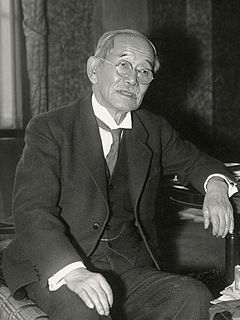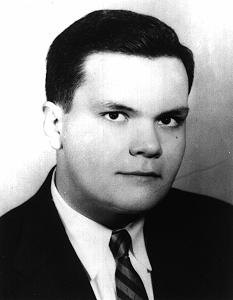A Quote by Kiersten White
I'd tell him, though. Soon. Soonish. Eventually.
Quote Topics
Related Quotes
She didn’t understand why it was happening,” he said. “I had to tell her she would die. Her social worker said I had to tell her. I had to tell her she would die, so I told her she was going to heaven. She asked if I would be there, and I said that I would not, not yet. But eventually, she said, and I promised that yes, of course, very soon. And I told her that in the meantime we had great family up there that would take care of her. And she asked me when I would be there, and I told her soon. Twenty-two years ago.
I had this idea for a long time to make a film about a poet in Paterson named Patterson. I wanted him to be working class. Eventually I thought a bus was a perfect visual way to move him, to drift him through the city, to have a measured kind of routine lifestyle. And all these things kind of congealed into the film "Paterson" eventually.
You catch any white man off guard in here right now, you catch him off guard and ask him what he is, he doesn't say he's an American. He either tells you he's Irish, or he's Italian, or he's German, if you catch him off guard and he doesn't know what you're up to. And even though he was born here, he'll tell you he's Italian. Well, if he's Italian, you and I are African even though we were born here.
Let the surgeon take care to regulate the whole regimen of the patient's life for joy and happiness by promising that he will soon be well, by allowing his relatives and special friends to cheer him and by having someone tell him jokes, and let him be solaced also by music on the viol or psaltery. The surgeon must forbid anger, hatred, and sadness in the patient, and remind him that the body grows fat from joy and thin from sadness.
I suppose he'll die soon. I'm expecting it, like you do for a dog that's seventeen. There's no way to know how I'll react. He'll have faced his own placid death and slipped without a sound inside himself. Mostly, I imagine I'll crouch there at the door, fall onto him, and cry hard into the stench of his fur. I'll wait for him to wake up, but he won't. I'll bury him. I'll carry him outside, feeling his warmth turn to cold as the horizon frays and falls down in my backyard. For now, though, he's okay. I can see him breathing. He just smells like he's dead.
I was talking to so many teenagers for so long that I started to feel like, 'I have my own story I want to tell, and I need to do it soon.' So I started to store away pieces that eventually became 'Speech & Debate.' I felt this burning need to write it while I still had not only all of the ideas but the passion to do it.
Eventually, with regret, I left the religious life, and, once freed of the burden of failure and inadequacy, I felt my belief in God slip quietly away. He had never really impinged upon my life, though I had done my best to enable him to do so. Now that I no longer felt so guilty and anxious about him, he became too remote to be a reality.
When you look at Michael Jackson, there's nobody who loves him in that family, nobody. If they did, they'd tell him he didn't have to do all that in order to be famous. All he has to do is keep doing his music and be himself. Michael's been a little touched for about 20 years, but somebody needs to pull him aside and tell him they love him.
In an argument, you may silence your opponent by pressing an advantage of strength or of wealth, or of education. But you do not really convince him. Though he is no longer saying anything, in his heart he still keeps to his opinion, the only way to make him change that opinion is to speak quietly and reasonably. When he understands that you are not trying to defeat him, but only to find the truth, he will listen to you and perhaps accept what you tell him.


































